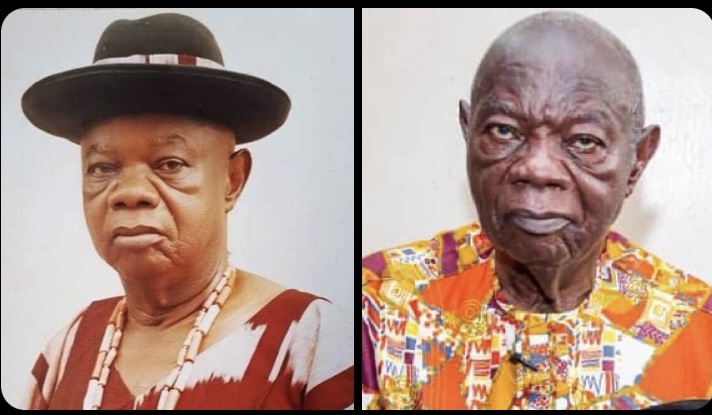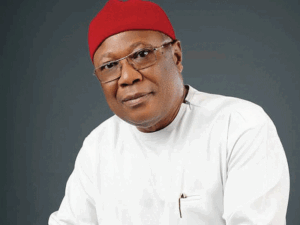The entire southeastern region and nigeria at large are in mourning following the death of one of its greatest cultural custodians, Chief Mike Ejeagha, who passed away on Friday at the age of 95. Widely regarded as one of the foremost folklorists and songwriters in the Igbo language, Ejeagha’s death has drawn tributes from across the political and cultural spectrum.
President Bola Ahmed Tinubu led the outpouring of condolences, describing Ejeagha as a musical storyteller whose legacy preserved the essence of Igbo culture for future generations. In a statement issued by his media adviser, Bayo Onanuga, the president acknowledged the artist’s unique ability to channel values, proverbs, and community wisdom through music.
“May the spirit and values of Gentleman Mike Ejeagha’s music continue to remind us that music has the power to revive, heal, and redirect energy towards worthy causes that help build our nation,” the statement read.
Former Vice President Atiku Abubakar reflected on the late resurgence of Ejeagha’s music, especially after a viral 2024 video by comedian Brain Jotter featured one of his classic tracks. “It is heartwarming to note that, thanks to Brain Jotter, highlife maestro Mike Ejeagha had his ‘Gwo gwo gwo ngwo’ encore dance before the curtain was drawn,” he wrote.
Labour Party’s 2023 presidential candidate, Mr. Peter Obi, also paid tribute, noting that Ejeagha’s transition “marks the end of an era, but not the end of his voice — his songs will continue to echo through generations as testaments to wisdom, culture, and truth.”
Enugu State Governor Peter Mbah, who had celebrated Ejeagha during his lifetime by reconstructing the long-neglected Obinagu Road and renaming an adjoining crescent in his honour, described the death as a “monumental loss” to the state and Nigeria’s cultural heritage. The governor assured that further efforts would be made to immortalise the highlife icon.
In a statement, the Minister of Art, Culture, Tourism, and Creative Economy, Hannatu Musa Musawa, described the late musician as a “legend whose work has made sterling contributions to Nigeria’s culture through music and folklore.” She noted that over 300 of his recordings are preserved in the National Archives of Nigeria, a testament to his lifetime of dedication to cultural preservation.
Meanwhile, the Human Rights Writers Association of Nigeria (HURIWA) called on both the federal and Enugu State governments to take more decisive steps to immortalise Ejeagha. The association described him as a “national philosopher and cultural intellectual” whose work deserves institutionalisation as a matter of national pride.
Born on April 4, 1930, in Imezi Owa, Ezeagu Local Government Area of Enugu State, Ejeagha carved out a niche in the highlife genre by fusing traditional Igbo storytelling with music. He began his recording career in the 1960s, and by the 1980s, his name had become synonymous with moral teachings delivered through melody. Songs like Omekagu, Uwa Mgbede Ka Mma, and Ka Esi Le Onye Isi Oche earned him both national acclaim and local reverence.
In 2024, Ejeagha’s music enjoyed renewed popularity following a viral dance video that introduced his 1983 track to a new generation of Nigerians. That moment became a symbolic final curtain call, marking the icon’s enduring relevance in Nigeria’s cultural conversation.
As tributes continue to pour in, the man many called “Gentleman” is being remembered not only as a musician, but as a historian, philosopher, and custodian of Igbo heritage




